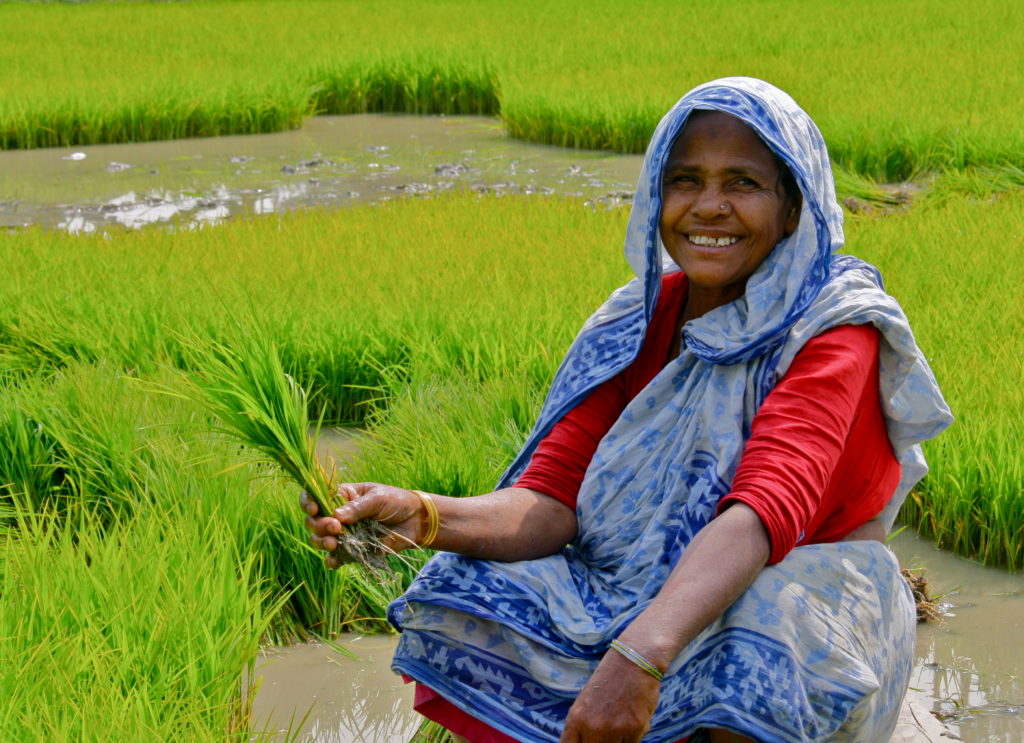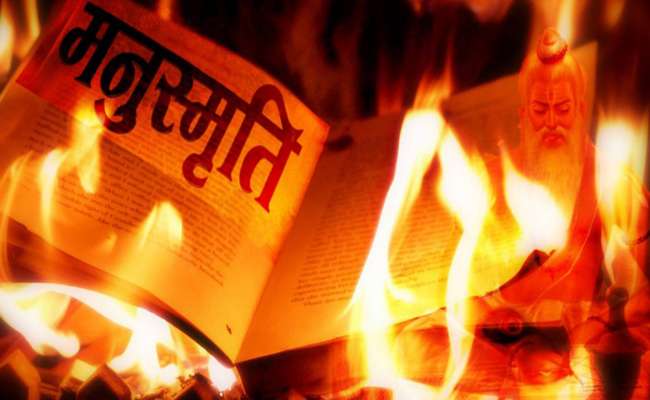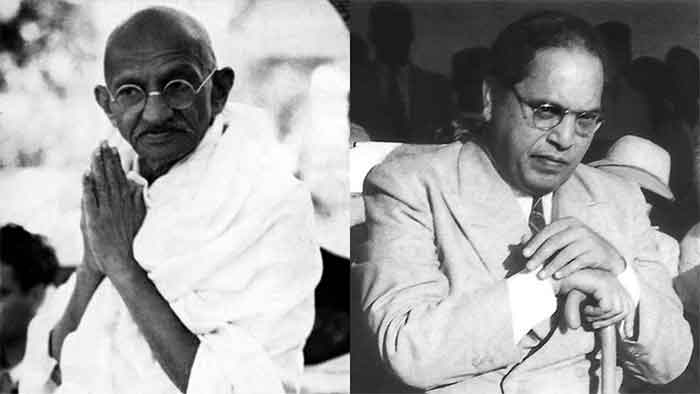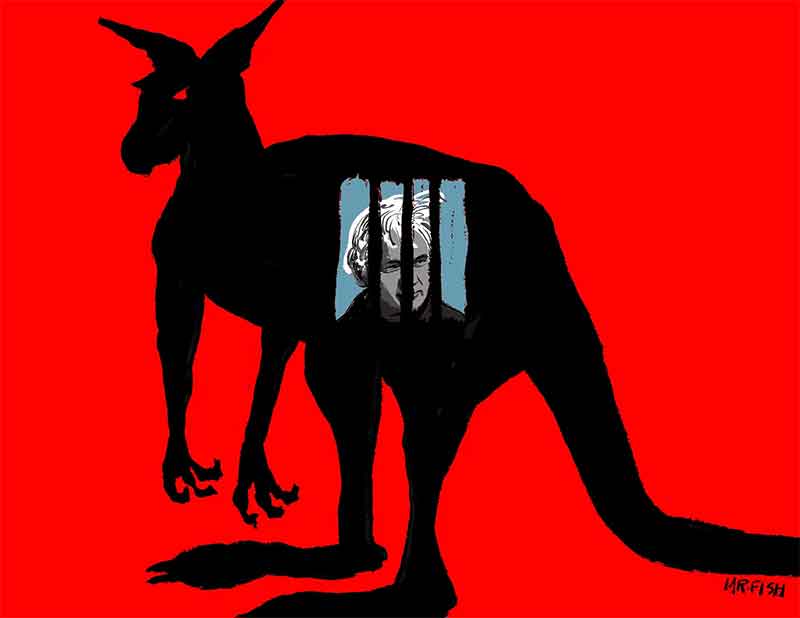
In China there was a philosophical school called Agriculturism between 770 BCE and 221 BCE. The main philosopher, who represented this school with a sophisticated exposition of that philosophy, was Xu Xing (372-289 BCE). His main philosophy was that people’s propensity is based on farming than to any other thing. By the third and the fourth century BCE the Chinese society had come out of pastoralism and firmly moved into agrarian production with a back up of strong philosophy of agriculturism. In Xu Xing’s philosophical domain agriculturist was known as ‘divine farmer’. The divine farmer was treated with higher esteem than the religious preacher.
In India farmer never got such a stature. A Brahmin saint who does not know what is agriculturism was given greater place in agrarian society also. The agriculturists were designated as Shudras by Brahmin saints and they were never allowed to acquire philosophical and respectful divine status. The Shudras had evolved their own agrarian spiritual deities but those deities were shown as unworthy in the brahmin literature. Thus production itself was rendered unworthy and it was not allowed to acquire philosophical significance.
Agriculturism as a philosophical school opposed division of labour and it proposed an idea, in China, called Shennong which in essence means that people should live by an ‘agrarian, communal and egalitarian’ system.
Confucianism opposed this school and proposed for division of labour and establishment of society of classes based on functional specialization. The agriculturist school was not a dogmatic school. It promoted ‘hundreds of schools of thought’ for spreading agrarian ideas. Free debate among farmers about seasons, seeds, crop patterns, methods of sowing, weeding and harvesting to improve the productivity was part of these hundred schools of thought. It also promoted debates around human society, God and their relationship. All agrarian societies built divine deities to represent God and relate to their abstract ideas of divinity. The Chinese society for a long time believed in worshipping nature as part of its deep agriculturist civilizational growth.
It was this Chinese agriculturist philosophy that engendered positive schools of thought like Confucianism, Taoism and Legalism later and accommodated Buddhism. But it never allowed Indian type of Brahminism (Hinduism) to take root in that country. We can now see how Indian Brahminism, that emerged after the third wave of migration of Aryans to the subcontinent (Tony Joseph, 20018) destroyed the very roots of agriculturist philosophy that had its existence in Harappan civilization. My assumption is that without agriculturism during Harappan times agriculture would not have developed to a level where surplus generation could take place and city civilization could have been built.
However, the Qin Dynasty that ruled China in the second century BCE opposed the agriculturalist philosophical school of thought as it believed in Legalism and burnt many of its books. Legalism itself was more progressive than Indian Brahminism which did not believe in any law that respects human being as a human being.
Unlike the Indian ancient Shudras who were agriculturalists but did not leave any written philosophical discourse, the Chinese agriculturists were great writers and philosophers. Since there was no varna-caste system in China every one had a right to read and write from ancient days and hence writings of all occupational forces were preserved in China by rulers after the Qin dynasty was overthrown. This is where the roots of Chinese agrarian development and Indian under- development lies.
Though Qin rulers burnt many books on agriculturist philosophy, yet the literature that survived influenced the Chinese civilization forever. Unfortunately, there is no such philosophical influence of Indian Shudra agriculturists as they were not allowed to emerge as thinkers and writers by Brahmins in ancient and medieval times. Once the Brahminism constructed Shudras as slaves and forced them to remain illiterate their philosophical growth was arrested. The Brahminic Vedas, Upanishads, Ramayana, Mahabharata, Kautilya’s Arthashastra and Manu’s Dharmashastra have no discourse on agriculturism and every writer in India treated these books as a source of Indian civilization and culture. All these books have nothing to do with agriculturism.
The Chinese agriculturism influenced many other schools of China, including Confucianism, though it opposed some aspects of agriculturism, Taoism, Legalism. It also influenced Buddhism of China once Buddhism reached there from India. Since the Qin Dynasty promoted Legalism that school also took strong roots in China from the second century BC onwards.
Wikipedia mentions:
“Due to its Legalist focus, the Qin Dynasty was thorough in its purging of rival philosophical schools, including Agriculturalism. However, Agriculturalism in its heyday heavily influenced the agrarian policies of Confucianism, Legalism, and other contemporary Chinese philosophical schools, and so subsequently many concepts originally associated with the Agriculturalists continued to exist in Chinese philosophy.
The transmission and translation of Chinese philosophical texts in Europe during the 18th century had a heavy influence on the development of Agrarianism in Europe. French agrarianist philosophy, a predecessor to modern Agrarianism, of François Quesnay and the Physiocrats, are said to have been modeled after the agrarian policies of Chinese philosophy”.
One of the main problems of India is that at no stage of Indian philosophical evolution agriculturism was allowed to take root as a philosophical school.
In 18th and 19th centuries when Europe was borrowing agriculturist philosophy the Indian thinking was still under the grip of brahminism.. The Shudra farmers were not allowed to develop their own alternative thought. The first Shudra thinker who asserted the importance of agriculture and farmer was Mahatma Jotirao Phule in the late 19th century. Phule realised that the Shudras were denied of a philosophical status and were reduced to the status of gulam (slave). No slave could construct a philosophical school of his own, so long as s/he remains slave. Hence he wrote Gulamgiri putting the Shudra farmer in the central. However, his thought did not develop into full-fledged agriculturism like the Chinese school of thought because he had no historical heritage of building up a school of thought with a series of writings. Without a systematic writing no school of thought would develop.
A full-fledged philosophical school emerges only when multiple thinkers write on the same subject. The Chinese agriculturists rightly believed that ‘ hundred schools must contend’ to build a proper mature philosophical school. Based on the Chinese agriculturist school Mao Zedong who came from an agriculturist farming family developed a slogan ‘Let hundred flowers bloom and thousand thoughts contend’. His idea of peasant revolution was also based on the Chinese history of agriculturism.
In India there was an anti-agrarian brahminism in power all through its written history. The Shudra varna was the only varna which was engaged in agrarian productivity and it was not allowed to read and was denied the basic human dignity and spiritually validated existence. Though agricultural development is based on the science of cultivation it naturally evolves its own philosophy. That philosophy transits from generation to generation and age to age only when it is codified into a text. This was not allowed by Brahmin writers and ruling Ksatriyas. The Vaisyas were in between the Shudra agriculturists and Brahmins in ancient India. Only Gupta rule from 3rd to 5th century AD the Vaisyas became Dwijas with full business rights and right to education. Subsequently they too opposed the Shudra agriculturism. Though Mohandas Karamchand Gandhi wrote their nationalist philosophy but that philosophy has nothing about agriculturism. Because the Indian Banias, who became a totally business community, lost touch with agriculture, he never studied the Chinese history as he studied the European history. Later a famous Dalit (former untouchable) thinker and philosopher,Dr B.R. Ambedkar critiqued brahminism but not from agriculturism point of view but from religious morality and caste-cultural exploitation view point.
Ever since Vedic texts were written the pre-Vedic agriculturism was set aside because agriculturism esentially survives as Xi Xing emphasises on farm production, communitarianism and egalitarianism. Indian Brahminism inherantly opposed communitarianism, as communitarianism plays a key role in the advancement of agriculturism. Communitarianism would not allow the caste culture to operate in any field of life. Since Vedism brought in four fold varna (caste-class) division which is not even based on division of labour but based on spiritual and social authority over the Shudras who were the mainstay of agriculturism, that division negated progress of agriculturalism.
Brahminism from the beginning disarmed the Shudra agriculturalists by not allowing them to write their discourses into textuality. The Brahminic war centric vedisim and epic ideology and Ksatriya heroism did not allow agriculturism to develop as a philosophical school of thought because that school would have been lead by the Shudra thinkers. Not that there were no Shudra agriculturist thinkers at a time when agriculturism developed as a strong philosophical school in China. But they were crushed with an iron hand from the days of Kautilaya writing Arthashastra and more so from the days of Manu writing of Dharmashastra.
From 3rd century BC to 1st century AD when agriculturism would have developed with some kind of agrarian production Kautilya’s Arthashastra and Manu’s Dharmashastra were written by devaluing agrarian production. Farmers in India were never allowed to become divine farmer. Brahminism promoted anti-social saints and sanyasis as the ultimate model of Indian society, who have no role in production and agriculturism.
The parampara of Kautilya and Manu were continued by Savarkar and Golwalkar through their writings in modern times. The Hindutva school with an overt ideology of enmity to religions like Chritisianity, Islam and Buddhism covertly its structural ideology is anti-agricutlturism. Though constructed their ideology in terms of nationalism advancing agrarian production was never part of their discourse.
Agriculture scientifically was found based on two process– photosynthesis and decomposition. Because of this twin process renewability becomes possible. There is a spiritual view that God commanded humans to labour on the land, to which they belong to and produce from it and live a long life. This is a scientific spiritual dictum. Building agriculture science is long engaged by forming community with a philosophical discourse that land and labour re-generate similar species by multiplying themselves, which became a useful thing for human survival.
The Shudra producers of India were capable of advancing the philosophy of agriculturism with constant interaction with land, plant and animal. Still this philosophy is in oral form as the Shudra producers did not write that philosophy in detail into texts. Our agricultural universities are not structurally suitable for advancing agriculturism as a philosophy. Because they are full of brahminism.
Agriculturism is based on reason and scientific engagement with soil, seed and animal with an out of the box thinking. The Hindutva parampara is either anti-agriculturist or does not understand its fundamentals as it needs a productive mind but not destructive mind; a positive mind not a negative mind.
This is what Manu told the Shudras to do. Their work in agriculture was never seen as work.
- 123. The service of the Brahmanas alone is declared to be an excellent occupation for a Shudra; for whatever else besides this he may perform will bear no fruit.
- 129. No collection of wealth must be made by a Shudra, even though he be able to do it; for a Shudra who has acquired wealth gives pain to Brahman.
No Shudra wrote anything worthy against this barbaric statement of Manu till a Dalit law maker and philosopher, Ambedkar, came and wrote the present constitution and repudiated Manu. After the Bharatiya Janatha Party, which still follows Manu’s Dharmashastra as part of the parampara, came to power in 2014, agriculture remains most neglected area of administration, as it is not part of their philosophy.
Kancha Ilaiah Shepherd is a Political Theorist, Social Activist and Thinker
SIGN UP FOR COUNTERCURRENTS DAILY NEWSLETTER

















































